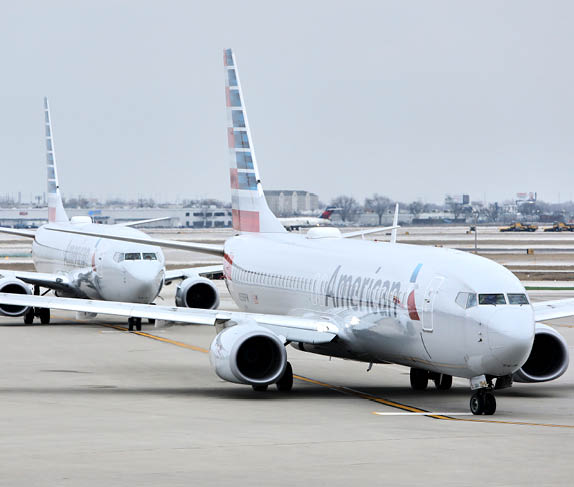Targeted reductions in net CO2 emissions in aviation are not achievable without a combination of prudent management of air traffic growth and financially demanding regulation, Fitch Ratings says.
The rating agency believes that government policies could curb air travel and incentivise alternative choices could disrupt the aviation sector and may have credit implications, but this is unlikely to happen in the short to medium term.
Pressure to decarbonise will continue to grow on the global airline sector, a sizeable contributor to CO2 emissions.
A statement from Fitch Ratings said: "We view targets set by several international organisations and national governments as ambitious and requiring constraints on traffic growth, in addition to improvements in aircraft fuel efficiency and gradual introduction of sustainable biofuels.
"We also believe achieving these targets requires a consistent and coordinated global approach.
"We view regulatory measures to curb CO2 emissions in aviation as having a limited financial impact on airlines and their implementation as patchy. No global scheme that could put a significant financial strain on airlines is visible within our rating horizon of three to five years, but this may shift under pressure from climate change activism."
It has also said that social and policy developments may provide a strong incentive for decarbonisation and cause disruption in the aviation sector. These developments include growing emissions awareness, environmentally focused customer choices and pressure groups discouraging others from flying. There are also proposed government policies that could curb air travel, such as additional aviation taxation and incentives for rail choices, especially for short-haul trips.
The financial impact of future emission reduction initiatives on airlines may vary, Fitch says. Generally, low cost carriers' (LCC) customers are more price sensitive than business or leisure travellers on network carriers. LCC ticket prices are fairly low, so additional charges related to CO2 emissions are likely to be more visible as a share of the ticket price and may have some impact on demand.
However, ultra-low cost carriers, such as Ryanair and Wizz Air, benefit from very low cost structures and a high share of ancillary revenue, which should support competitiveness, Fitch says.

